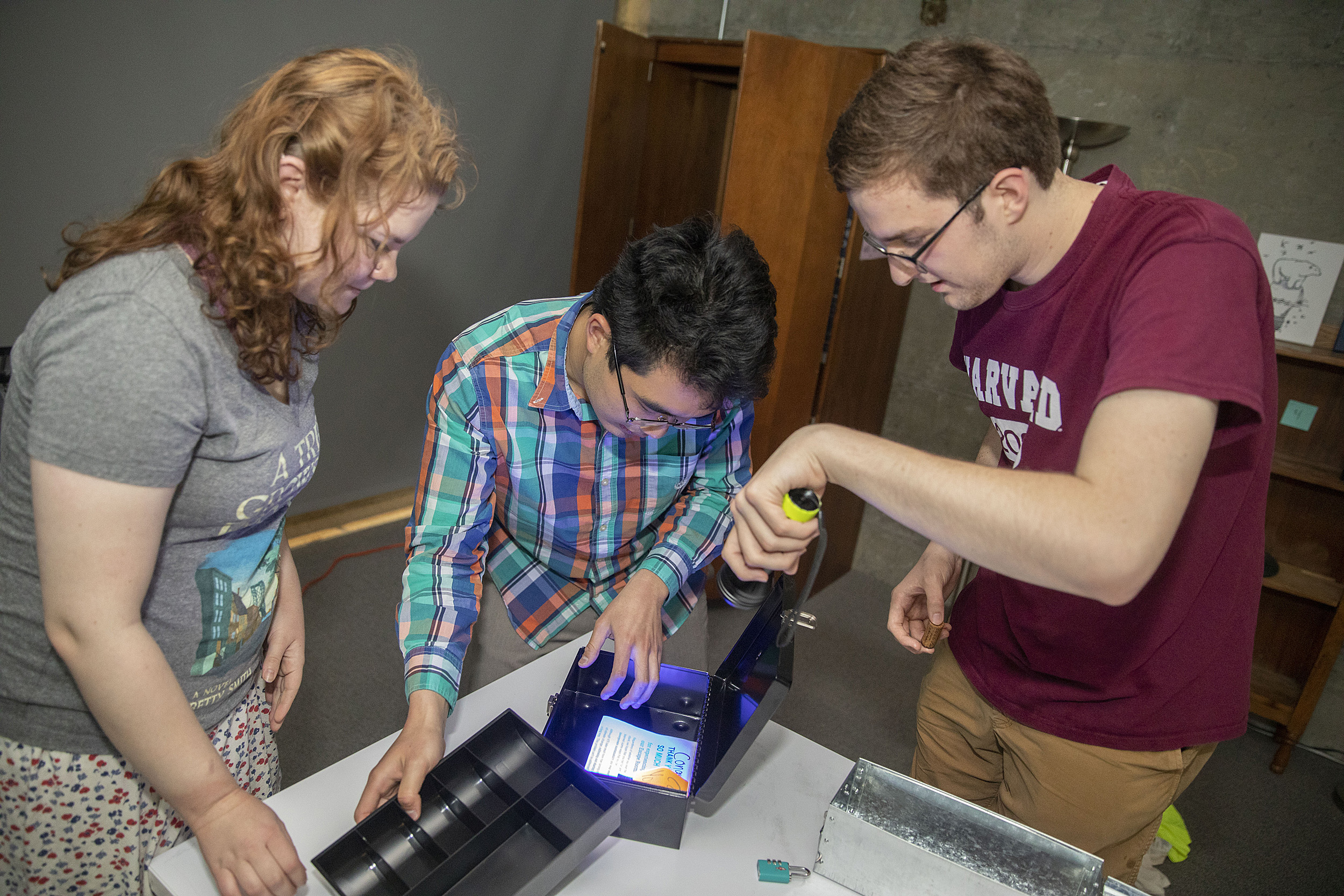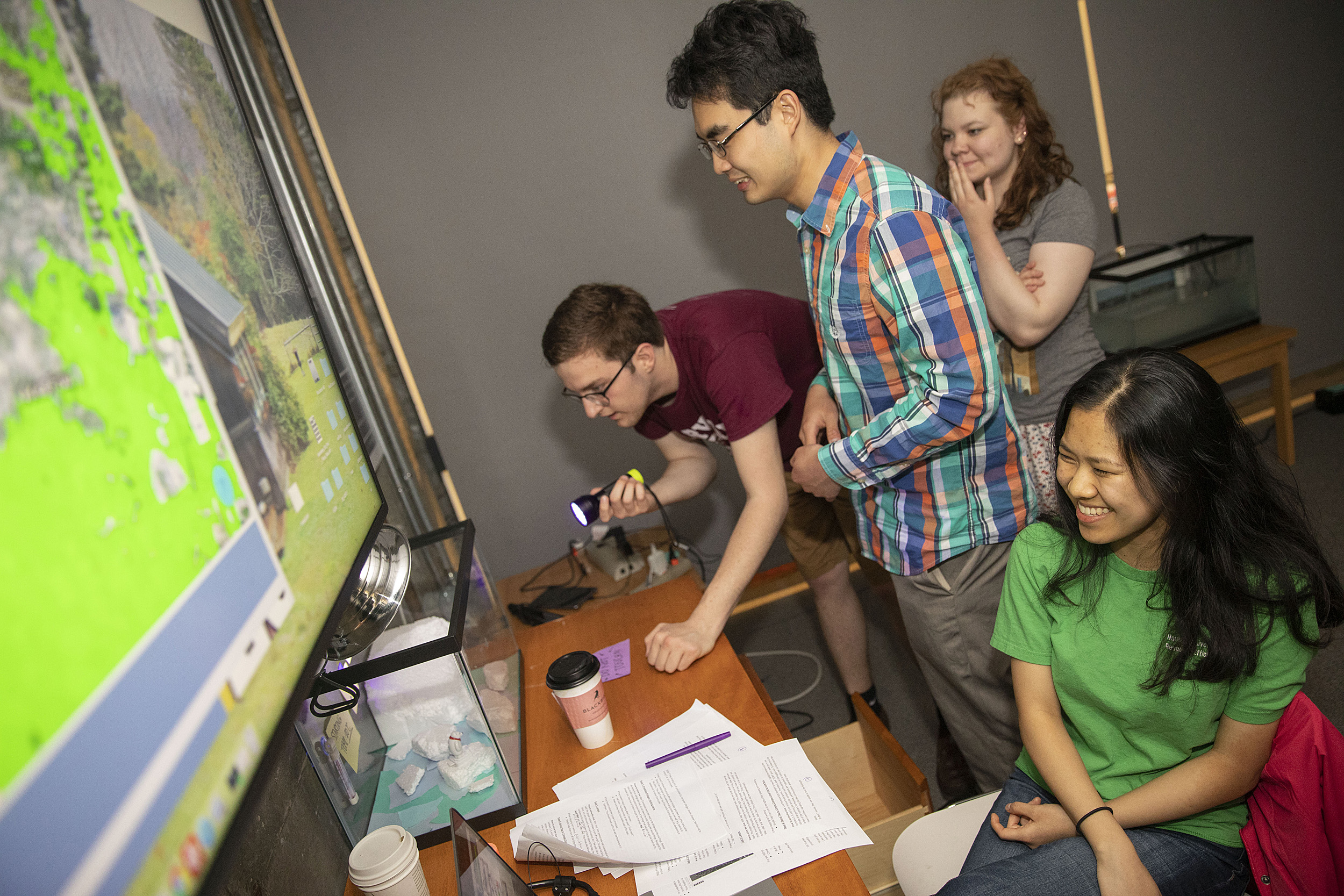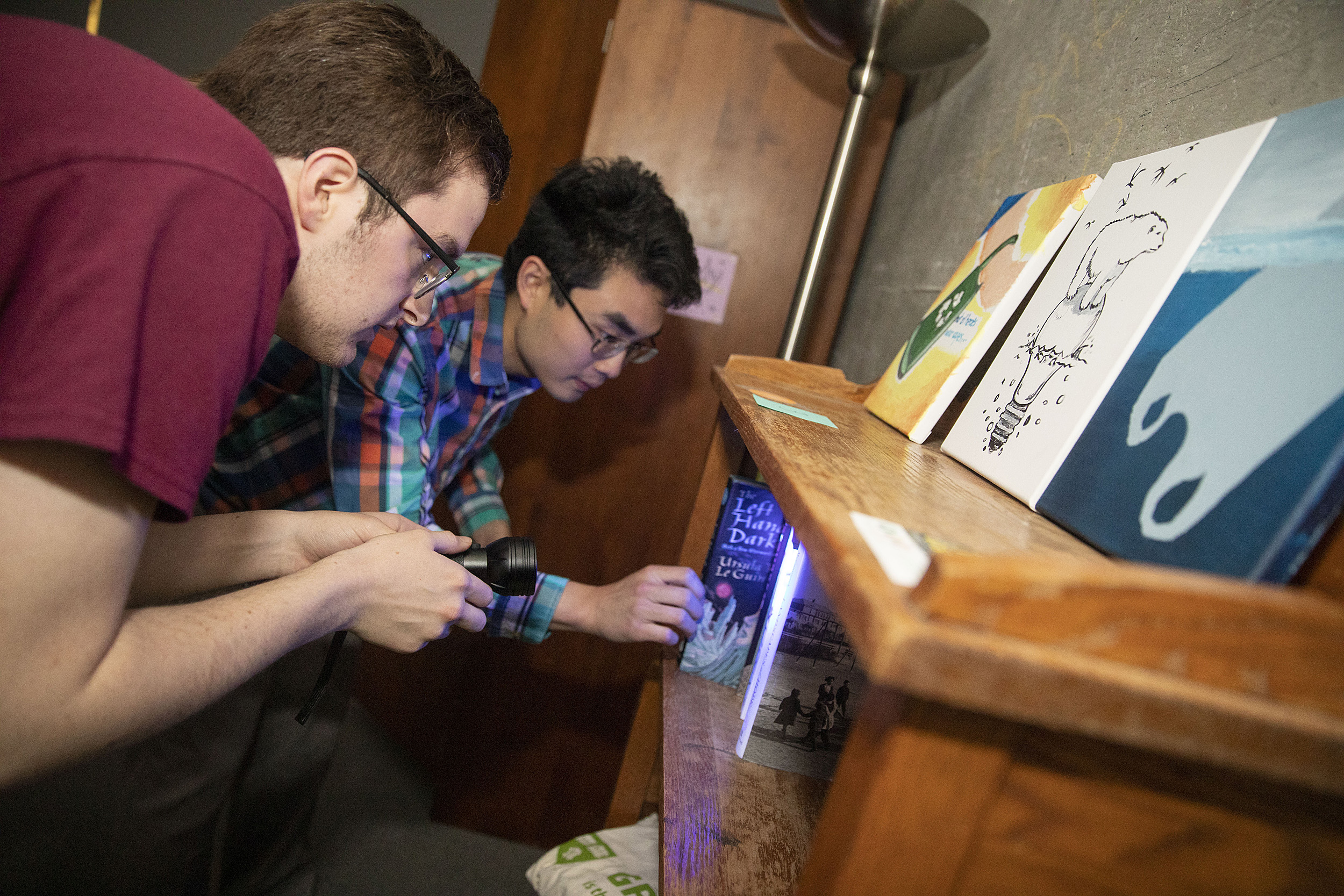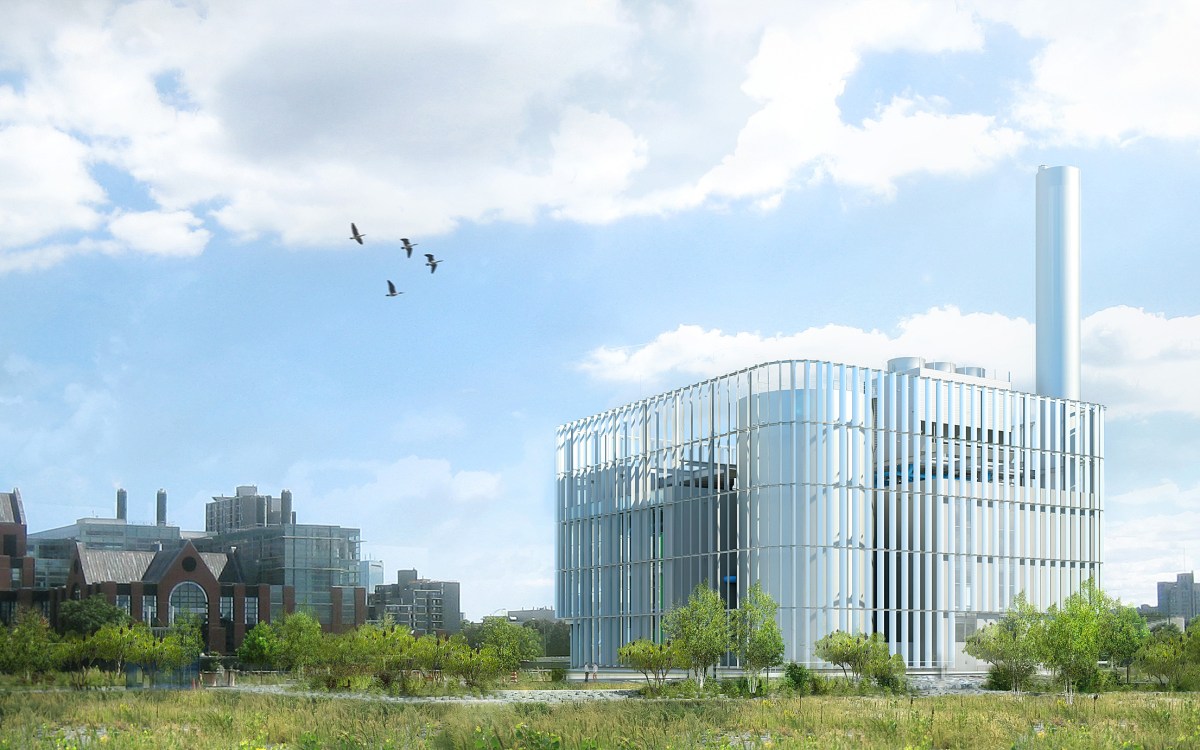
Jena Lorman (left), Michael Cheng, and Tyler Morris, all ’22, solve environmental challenges in the sustainability-themed escape room that was set up earlier this week in the Smith Campus Center.
Photos by Kris Snibbe/Harvard Staff Photographer
The green escape
Harvard students create a sustainability-themed escape room
Once the door closed, participants had 25 minutes before flood waters swept them away.
At least, that was the scenario three Harvard College first-year students walked into on Monday when they entered the sustainability-themed escape room created by the Office for Sustainability’s Undergraduate Resource Efficiency Program.
The room ran April 22‒24 in recognition of Earth Day and as a part of the Office of Sustainability’s month-long events celebrating Harvard’s commitment to sustainability and a healthier planet. It presented participants with puzzles they had to solve to stop sea level rise from submerging parts of Cambridge and devastating Harvard’s campus.
“We thought this would be a really cool way to get people to directly engage with some of those [environmental and sustainability] issues,” said Rosie Wigglesworth ’19, one of the students who organized the room.
Their thinking was spot-on. The room attracted more than 100 Harvard community members, mostly undergraduates, and ran about 14 times a day over a three-day span in the Smith Campus Center. It was a fun, interactive way to test their puzzle-solving skills while learning simple steps they can take to mitigate climate change.
In recent years, escape rooms have become increasingly popular outings for groups of friends. There are now more than 2,000 in the U.S., and a psychological horror film called “Escape Room” was released this year.
In the game, participants are “trapped” inside a room from which they can “escape” only by completing a series of challenges. The rooms tend to follow one of two approaches, or a mix of both. Some have participants solve riddles and puzzles to earn their freedom; others are more physically demanding, making participants navigate a sort of obstacle course.
Harvard’s escape room focused on the mind. It presented participants with a series of puzzles embedded with sustainability lessons on topics such as recycling, waste management, fridge defrosting, and phantom energy waste.
“Because the mission of [the Resource Efficiency Program] is to encourage sustainable lifestyle shifts,” said Meaghan Townsend ’21, another member of the sustainability office’s program, “all the tasks are centered around changes that students could make, specifically in a dorm-room-type set-up on campus.”
In the room, there were mini-refrigerators, wooden furniture, books, surge protectors, and, of course, a snarky roommate — played by Beverly Ge ’20 — who every once in a while said something helpful.


Room guide Beverly Ge (green shirt) played a snarky roommate, occasionally giving clues to Tyler Morris, Michael Cheng, and Jena Lorman.
“I think starting with No. 1 seems reasonable,” she told the three first-year students — Michael Cheng, Jena Lorman, and Tyler Morris — as they unsuccessfully scoured the room for a place to start. In their initial frenzied search, they had missed the glaring clue hanging over a surge protector. The label, with the number 1 written on it, marked it as the first puzzle.
“I feel like we have to unplug some things,” said Cheng, looking at all the cords in the surge protector.
His teammates agreed. But the question — and the point of the lesson — was what to unplug?
With another clue from Ge, participants figured out that the letters taped onto each of the plugs spelled a word. They then saw that they needed to unplug the cords that were not powering anything, because though they weren’t being used they were still drawing electricity from the outlet, a thing known as vampire or phantom energy waste.
Other tasks in the room involved sorting waste into the proper trash, compost, or recycling bins; consolidating two fridges; turning off unused lights; and finding a lock combination using a black light and clues from a rising thermometer.
While participants worked, a monitor displayed the time remaining and projection maps (provided by the city) showed how much of Cambridge had flooded in the elapsed time, driving home the time crunch involved.
“We think of this escape room as not identical to reality but as a sort microcosm,” said Wigglesworth. “It has stakes. You need to do these things in order to reach this certain goal, and you need to do these things quickly because there’s a time limit. That was what we liked about the escape room; it was going to communicate this sense of urgency and also that [change is] within people’s reach.”
Participants found it surprisingly informative.
“Hearing the setup of it, I didn’t think that I was going to be receiving any new knowledge,” said Morris. “It made me aware to how many things I didn’t know when it came to environmental sustainability. Like the vampire power; I’d never heard of that.”
Students from the Resource Efficiency Program have been working on the escape room since early fall, consulting with cities and universities that have run sustainability-themed escape rooms in the past and connecting with a local one, Red Fox Escapes, for advice on ensuring their narrative delivered the sense of urgency they sought.
Students also connected with representatives from Cambridge’s Community Development Department, who, along with their high school interns from Cambridge Rindge and Latin School, are working on creating a similar room for the city in the fall. As a group, the interns and city employees led a beta test of the room. The results led to some final tweaks, like extending the escape time from 20 to 25 minutes and making certain clues clearer.
“Having made the puzzles and designed the rules, we had no idea whether the level of difficulty was correct, how long it would take, and whether [the puzzles] were intuitive or not,” said Kalena Wang ’20. “The beta testing helped a lot with the small details of connecting the tasks in the room, but it also helped a lot with the broader framing.”
Those small refinements ensured participants would have fun but also learn something. “It’s all put in a way that will make me remember it,” Morris said. “It will click for me next time, as opposed to just receiving just a flyer or a handout.”







